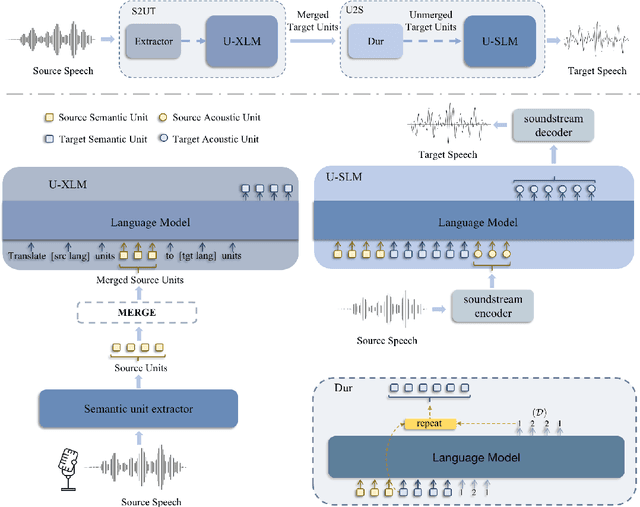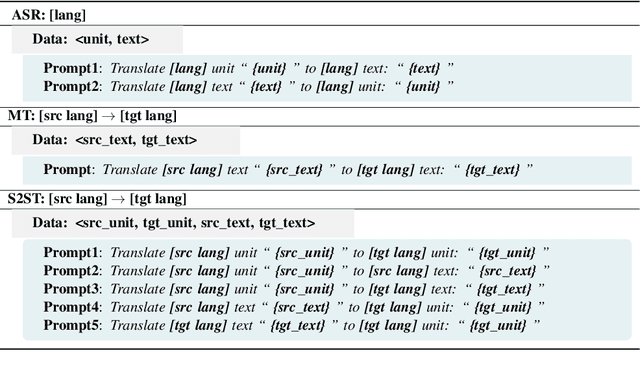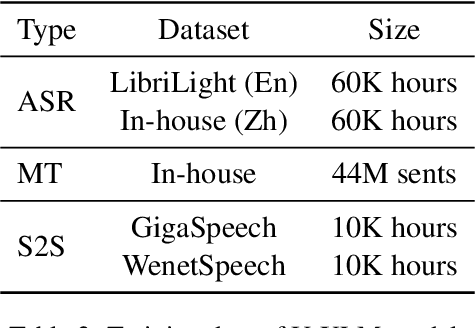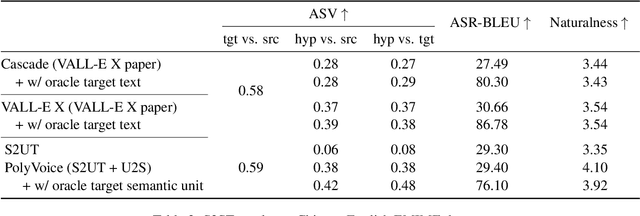Zhiying Huang
Seed-TTS: A Family of High-Quality Versatile Speech Generation Models
Jun 04, 2024



Abstract:We introduce Seed-TTS, a family of large-scale autoregressive text-to-speech (TTS) models capable of generating speech that is virtually indistinguishable from human speech. Seed-TTS serves as a foundation model for speech generation and excels in speech in-context learning, achieving performance in speaker similarity and naturalness that matches ground truth human speech in both objective and subjective evaluations. With fine-tuning, we achieve even higher subjective scores across these metrics. Seed-TTS offers superior controllability over various speech attributes such as emotion and is capable of generating highly expressive and diverse speech for speakers in the wild. Furthermore, we propose a self-distillation method for speech factorization, as well as a reinforcement learning approach to enhance model robustness, speaker similarity, and controllability. We additionally present a non-autoregressive (NAR) variant of the Seed-TTS model, named $\text{Seed-TTS}_\text{DiT}$, which utilizes a fully diffusion-based architecture. Unlike previous NAR-based TTS systems, $\text{Seed-TTS}_\text{DiT}$ does not depend on pre-estimated phoneme durations and performs speech generation through end-to-end processing. We demonstrate that this variant achieves comparable performance to the language model-based variant and showcase its effectiveness in speech editing. We encourage readers to listen to demos at \url{https://bytedancespeech.github.io/seedtts_tech_report}.
PolyVoice: Language Models for Speech to Speech Translation
Jun 13, 2023



Abstract:We propose PolyVoice, a language model-based framework for speech-to-speech translation (S2ST) system. Our framework consists of two language models: a translation language model and a speech synthesis language model. We use discretized speech units, which are generated in a fully unsupervised way, and thus our framework can be used for unwritten languages. For the speech synthesis part, we adopt the existing VALL-E X approach and build a unit-based audio language model. This grants our framework the ability to preserve the voice characteristics and the speaking style of the original speech. We examine our system on Chinese $\rightarrow$ English and English $\rightarrow$ Spanish pairs. Experimental results show that our system can generate speech with high translation quality and audio quality. Speech samples are available at https://speechtranslation.github.io/polyvoice.
ProsoSpeech: Enhancing Prosody With Quantized Vector Pre-training in Text-to-Speech
Feb 16, 2022


Abstract:Expressive text-to-speech (TTS) has become a hot research topic recently, mainly focusing on modeling prosody in speech. Prosody modeling has several challenges: 1) the extracted pitch used in previous prosody modeling works have inevitable errors, which hurts the prosody modeling; 2) different attributes of prosody (e.g., pitch, duration and energy) are dependent on each other and produce the natural prosody together; and 3) due to high variability of prosody and the limited amount of high-quality data for TTS training, the distribution of prosody cannot be fully shaped. To tackle these issues, we propose ProsoSpeech, which enhances the prosody using quantized latent vectors pre-trained on large-scale unpaired and low-quality text and speech data. Specifically, we first introduce a word-level prosody encoder, which quantizes the low-frequency band of the speech and compresses prosody attributes in the latent prosody vector (LPV). Then we introduce an LPV predictor, which predicts LPV given word sequence. We pre-train the LPV predictor on large-scale text and low-quality speech data and fine-tune it on the high-quality TTS dataset. Finally, our model can generate expressive speech conditioned on the predicted LPV. Experimental results show that ProsoSpeech can generate speech with richer prosody compared with baseline methods.
 Add to Chrome
Add to Chrome Add to Firefox
Add to Firefox Add to Edge
Add to Edge